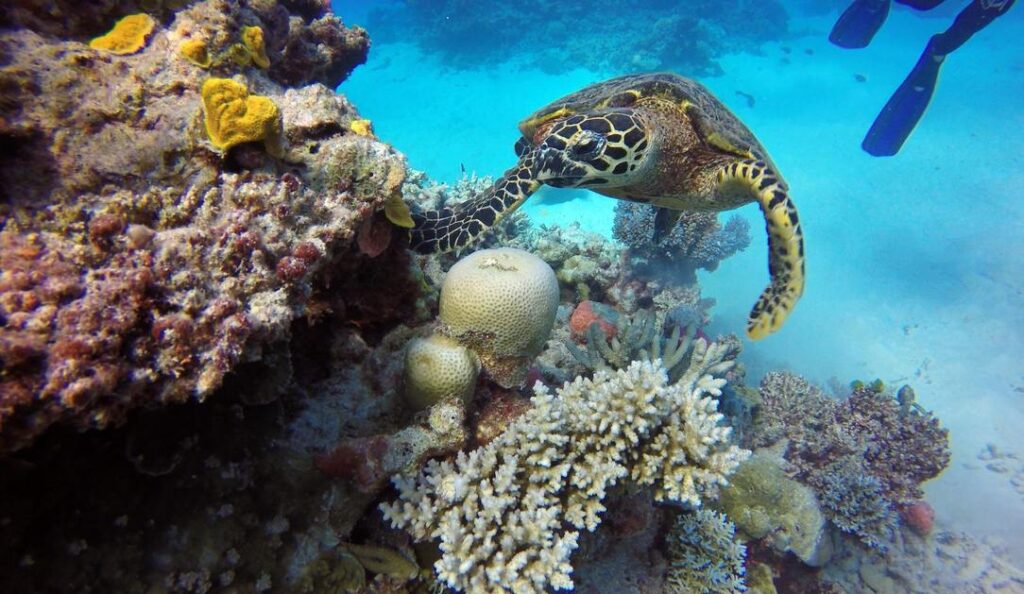Travel is exciting and enriching but can be environmentally damaging. Knowledge is power and drives change. That’s why we wanted to write this article, to inform our readers how to be sustainable travellers.
Here are our suggestions for fun activities while travelling which have a lesser carbon footprint and a lesser impact on nature:
Animal or Bird watching. As a general rule it is better to observe animals in their natural habitat rather than to interact with them.
Eat more plants.Reducing meat and dairy consumption is not only so much better for the animals but also for our planet. Food production is one of the greatest drivers of wildlife loss, is often harmful to the animals and is a major CO2 contributor. Even switching one meal for a plant-based option has a great impact, vegan food is now made to be so varied, colourful and creative it can be really exciting to try different vegan food dishes, and you may find new favourite foods and flavours. There are also over 20,000 known edible plants, so there’s really no limits to variety!
Fact: ‘Farming animals for meat and dairy requires space and huge amounts of water and feed. The livestock industry alone generates nearly 15% of all man made greenhouse gas emissions. With global meat consumption soaring 500% between 1992 and 2016, it is clear we need to rebalance our diets by prioritising plants and moderating our intake of animal products,’ (WWF 2023).
Explore Nature on foot or by bicycle to reduce carbon emissions and reduce disruption to natural habitats and delicate flora and fauna.
Venture to a National Park or UNESCO World Heritage Site. These sites help to provide protected habitats for endangered species, educational outreach, and much more. They are both unmeasurably important for our future generations.
Less exciting but equally important key traveller tips:
Reduce waste by taking a reusable water bottle with you to save the need to buy water. This will also eliminate unnecessary plastic use and more waste ending up in landfill.
Try to only buy what you will eat: did you know that food waste produces methane, a harmful gas that contributes to climate change and is 25 times more powerful than CO2? (WWF 2023).
Travel closer to home where possible. This will dramatically lower your carbon footprint. Imagine all of the unexplored places and adventures you could have nearby, whether that involves a beach, forest, city or countryside break.
When travelling further afield seek out local experiences close to your hotel. Try to travel off peak and to areas that are not over crowded to avoid disrupting the natural ecosystems of the area, and to avoid upsetting the locals! Crowds and long queues are never fun anyway!
‘Traveller’s can help further by volunteering in environmental and social projects helping to rebuild devastated communities, said Laurie Myers, the project lead for the Global Travel and Tourism Resilience Council, which helps the industry to focus on sustainable outcomes for disaster-affected communities. Travel and tourism is probably the fastest way to recovery,’ (NY TIMES, 2023).
Even taking a small role such as spending an hour litter picking off the local beach can have a huge beneficial effect.
Book Eco Hotels can book you an eco-friendly sustainable accommodation in addition to making local vegan food suggestions. In addition our friendly team can book you low impact activities such as snorkelling, swimming, stargazing, paddle boarding and hiking trails among many others!
Take shorter showers.Using too much water is wasteful and causes problems to the local environment by moving water resources away from the natural ecosystem. Other effects of water wastage can involve limits on water availability to other communities, and puts strain on our planets’ resources.
Fact: ‘The energy needed to move, treat, and use water in the US for both residential and commercial purposesproduces nearly 290 million metric tonnes of CO2 annually– the equivalent of 5% of the nation’s overall carbon emissions’, (BBC, 2020).
When shopping buy second-hand. Doing this not only gives new life to older products but will save you money, and it’ll reduce the amount of waste as well as the carbon footprint associated with manufacturing new products.
The United Nations World Tourism Organisation (WTO) defines sustainable tourism as ‘tourism that meets the needs of present tourists and host regions while protecting and enhancing opportunity for the future.’
International Council on Monuments and Sites (ICOMOS) define sustainable tourism as ‘a level of tourism activity that can be maintained over the long term because it results in a net benefit for the social, economic, natural and cultural environments of the area in which it takes place.’
The sad truth is we only have finite resources and space. Animal species and our nature need to be protected.
If lots of people make small changes, together we can create a more liveable planet for all.
